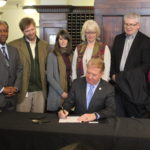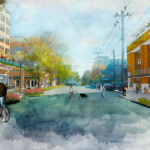City extends comment period on evaluation of citywide Mandatory Housing Affordability
SEATTLE (July 6, 2017) –Today the Seattle Office of Planning and Community Development (OPCD) extended the public comment period until August 7 on the Draft Environmental Impact Statement that studies three alternatives for zoning changes needed to implement Mandatory Housing Affordability (MHA) in Seattle’s urban villages and other commercial and… [ Keep reading ]



